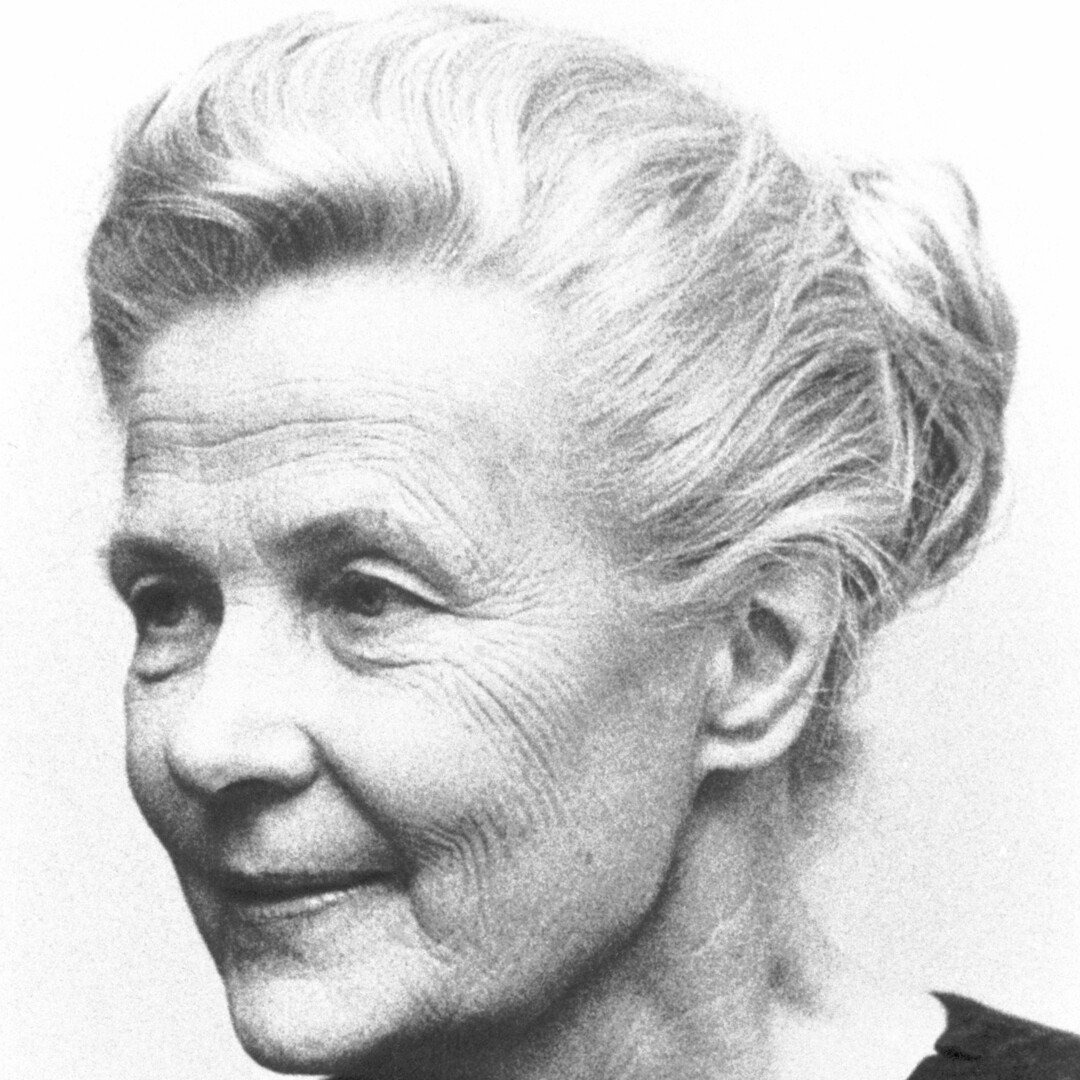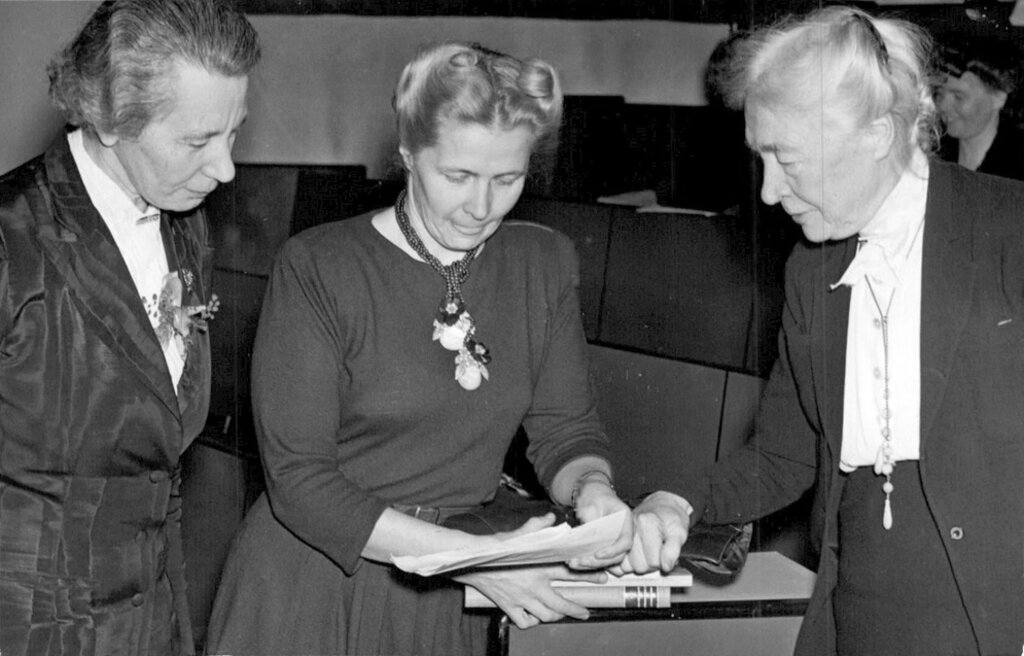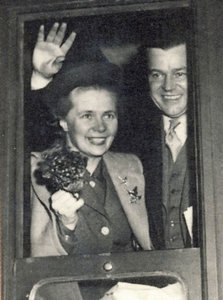Alva Myrdal
Speed read
Alva Myrdal was awarded the Nobel Peace Prize, jointly with Alfonso García Robles, for their work for disarmament and nuclear-weapon-free zones.

Full name: Alva Myrdal
Born: 31 January 1902, Uppsala, Sweden
Died: 1 February 1986, Stockholm, Sweden
Date awarded: 13 October 1982
Peace through disarmament
Alva Myrdal had an impressive career behind her when she was elected to the Swedish Riksdag in 1962. Trained in philology and education, she worked with the Social Democratic Party during the inter-war years to improve conditions for the working class. She was also widely known as a women’s rights advocate. After WWII, Myrdal held prominent positions in the UN system. The secretary-general selected her to direct UNESCO’s Social Sciences Division, and from 1955 to 1961 she served as Sweden’s ambassador to India. As the cabinet minister responsible for disarmament issues, Myrdal was an innovator. In her view, Sweden, as a neutral nation, should work for disarmament of the superpowers. She was especially concerned about the nuclear arms race and sought to establish nuclear-free zones in Europe.
| UNESCO United Nations Educational, Scientific and Cultural Organisation. Founded in 1946. Noted especially for its efforts to promote literacy. |

"Without nuclear arms we run less risk of being drawn into the orbit of the great powers, with their hyper-dangerous weapons. And after all, there is no defense against them."
Alva Myrdal, Nobel Lecture, 11 December 1982.
People’s peace prize
Many Norwegian peace activists were disappointed when Alva Mydral was not awarded the Nobel Peace Prize in 1981, so they conducted their own fundraiser. This resulted in a gift of NOK 400,000 to Myrdal in February 1982. Eight months later, the Norwegian Nobel Committee announced that she had been selected as Nobel Peace Prize laureate! Myrdal decided to use the people’s gift to establish a peace fund for use in Norway. Funds would be granted to organisations and individuals seeking to disseminate information on disarmament and free the world of nuclear weapons.
Disarmament negotiator
From 1962 to 1970, Alva Myrdal represented the Social Democratic Party in the Swedish Riksdag (parliament). She served as cabinet minister with responsibility for disarmament issues for seven years until she left the post in 1973. Both as a member of parliament and as cabinet minister, Myrdal led the Swedish delegation at the Geneva disarmament negotiations. As spokesperson for a small, non-aligned nation, she actively sought to encourage the disarmament of the Soviet Union and USA. Myrdal supported the establishment of nuclear-free zones in Europe, believing that every country should declare itself free of nuclear weapons.
Population and standards of living
In 1934, Alva and Gunnar Myrdal became famous throughout Sweden when they published Crisis in the population question. The book demanded radical reforms in family, housing and social policy. Its goal was to ensure that working-class parents could afford to have more children. This broke with a deeply rooted belief among Social Democrats that the birth rate needed to be kept low in order to improve living conditions for the working class. The book and the couple’s social engagement made Alva Myrdal influential in Swedish social policy in the interwar years.

Photo: Pressens bild, photographer unknown. Public domain, via Wikimedia Commons
"Alva Myrdal belongs to the world community: but she is ideologically firmly rooted in Nordic constitutional principles and in our democratic ideals. These were the ideals that motivated her when she acted as head of delegation during the disarmament negotiations in Geneva."
Chairman of the Norwegian Nobel Committee Egil Aarvik, Presentation Speech, 10 December 1982.
Learn more
Alva Myrdal was born in Uppsala in 1902, graduated from University in 1924, and married Gunnar Myrdal the same year. Together with her husband she made a major contribution in the 1930s to the work of promoting social welfare ...
Disclaimer: Every effort has been made by the publisher to credit organisations and individuals with regard to the supply of photographs. Please notify the publishers regarding corrections.
Nobel Prizes and laureates
Six prizes were awarded for achievements that have conferred the greatest benefit to humankind. The 12 laureates' work and discoveries range from proteins' structures and machine learning to fighting for a world free of nuclear weapons.
See them all presented here.
